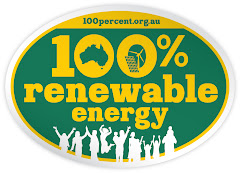Credit where credit’s due. At the dawn of 2009, John Brumby, and his Minister for the Environment and Climate Change, Gavin Jennings, announced the formation of four new national parks in
The announcement includes an adjustment package for those who will lose their jobs as a result of the formation of the parks and the State Government claims that more jobs will be created once the decision is implemented. The parks are an important step towards boosting the resilience of vital ecosystems in the area, especially as the impacts of climate change on the
Unfortunately that is where the credit ends. The Brumby State Government has so far been a great disappointment on environmental issues and on climate change. While they have implemented some tokenistic market-based policies such as the Victorian Renewable Energy Target, the Victorian Energy Efficiency Target and a second-rate solar feed-in tariff, the fact remains that climate change is ignored in almost every policy decision and
A recent report by The Climate Group shows that
This is a damning indictment of John Brumby’s policies. At a time when scientists all over the world are calling loudly for rapid and deep cuts in emissions,
On top of this, the Commissioner for Environmental Sustainability’s State of the Environment Report, released in late 2008, makes for alarming reading. Most of
John Brumby and Gavin Jennings, it’s time you listened to the world-class climate scientists you have appointed to your Climate Change Reference Group, such as David Karoly and Amanda Lynch, and get serious on climate change. We suggest you start by changing the following policies:
Transport
Despite the fanfare and the great wads of taxpayers’ money spent in its promotion, the Victorian Transport Plan is more of the same short-sightedness that has got us into this huge transport mess in the first place. According to the Public Transport Users Association, the plan commits the State Government to building 122km of new roads. Almost half of the $38 billion plan will go to increasing or building new major road capacity. Building new roads in metropolitan
Energy
The rhetoric is that the State Government supports renewable energy. In reality however, John Brumby has approved a new coal-fired power station and a gas-fired power station for construction in
Forests
The Brumby Government continues to support the logging of old growth forests. This insanity means that we are irreversibly destroying some of our best carbon sinks, the ecosystems that provide us with clean air and water and provide habitat for our biodiversity. Logging is currently occurring at
Water
The water outlook for
In addition, the State Government continues to water down the environmental criteria for the desalination plant. It has gone back on its promise to build renewable energy generation to power the plant, and is now going to purchase renewable energy certificates to cover its electricity use (but not the energy used in its construction). Just one week ago, the State Government watered down the energy efficiency requirements of the plant, removing all limits on energy consumption.
The Brumby Government needs to understand that the crises we are now facing, brought about through a combination of climate change, resource depletion and biodiversity loss (among others) have the capacity to destroy the very foundations of human economic activity and human wellbeing. We need a change in paradigm, leading to a change in policy, and we need it fast.




